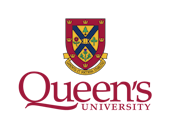
Queen's University, Ontario

Established in 1841 and one of Canada’s oldest degree-granting institutions, Queen’s today is a mid-sized university that provides a transformative student learning experience within a research-intensive environment A member of the prestigious U15 group of research-intensive Canadian universities, Queen’s conducts leading-edge research in areas of critical concern. Queen’s is also a member of the Matariki Network, an international group of research-intensive universities with a strong shared commitment to the undergraduate and graduate student learning experience.
Links
Displaying 241 - 260 of 524 articles

If Canada began to reduce its greenhouse gas emissions by about four per cent per year, we could still meet our 2030 climate targets.

While seemingly an alternative to solitary confinement, Structured Intervention Units have been a catastrophic failure, especially for imprisoned people with mental illness.

The COVID-19 pandemic has dramatically accelerated a growing shift to test-optional admissions policies or scrapping entrance tests altogether.

Lethal methods and relocation aren’t effective, sustainable or humane approaches to human-wildlife conflicts.

The Great Barrington Declaration’s advocacy for naturally acquired herd immunity to COVID-19 amounts to a global chickenpox party: naive and dangerous.

Recent industry reports indicate that we may be approaching peak global demand for oil. If that’s the case, the federal Conservatives may need to rethink their electoral strategy.

Canada is accepting claims emerging from a settlement with survivors of Indian day schools, but there has yet to be a public inquiry. There is an urgent need to hold Canada accountable.

Since the beginning of the COVID-19 pandemic, there has been an increased interest in local food. This demand could be leveraged to help develop community resilience and encourage healthier diets.

When minimum security units are closed in prisons, it is both a human rights violation and a reduction in available choices for women sentenced to prison time.

For patients recovering from heart surgery, being overweight or moderately obese appears to be an advantage over being underweight or even having a normal BMI.

Internet technologies and the devices that enable information access and transfer are useful in crisis management. Accessing these readily available digital technologies can help community resiliency.

Both university and government policy-makers need to re-tool their messaging to students about off-campus socializing to shape more positive mental health and COVID-19 outcomes.

New regulations will allow oilsands companies to release 1.3 trillion litres of liquid waste into the Athabasca River in 2022. A new technology could clean the wastewater before it’s let go.

Naturally occurring retirement communities, or NORCs, are unplanned communities that have a high proportion of older residents. They may be critical to finding housing solutions for aging Canadians.

Understanding terms like sensitivity and specificity can help us make sense of COVID-19 testing, the accuracy of tests and what the results mean.

An intense controversy over sending Canadian teens to Cuba to cut sugar cane in the 1970s raises questions about why WE Charity’s international development approach hasn’t been controversial for years.

Moving classes outside deserves serious consideration not only for better ventilation, but also to introduce more education devoted to learning on, from and with the land.

Personne ne veut d’une marée noire dans son jardin. Mais pour comprendre le sort et les effets réels du bitume dilué – un produit des sables bitumineux – c’est ce que certains scientifiques ont fait.

Massive landslides can trigger destructive and deadly tsunamis, and climate change could make them worse.

As we venture out into the world during the COVID-19 pandemic, treating each interaction as a type of micro-negotiation provides a helpful road map for navigating potentially tricky situations.
